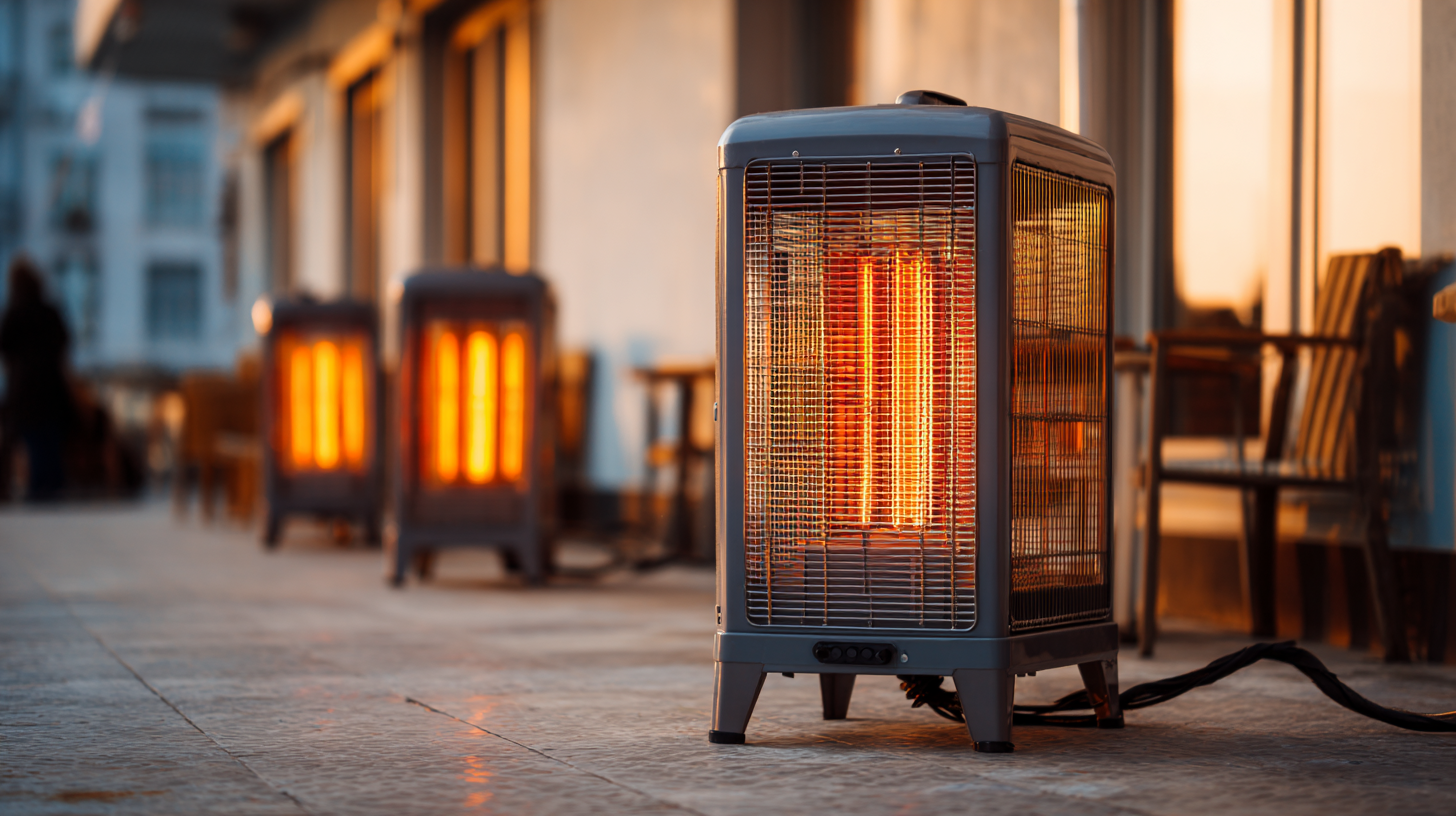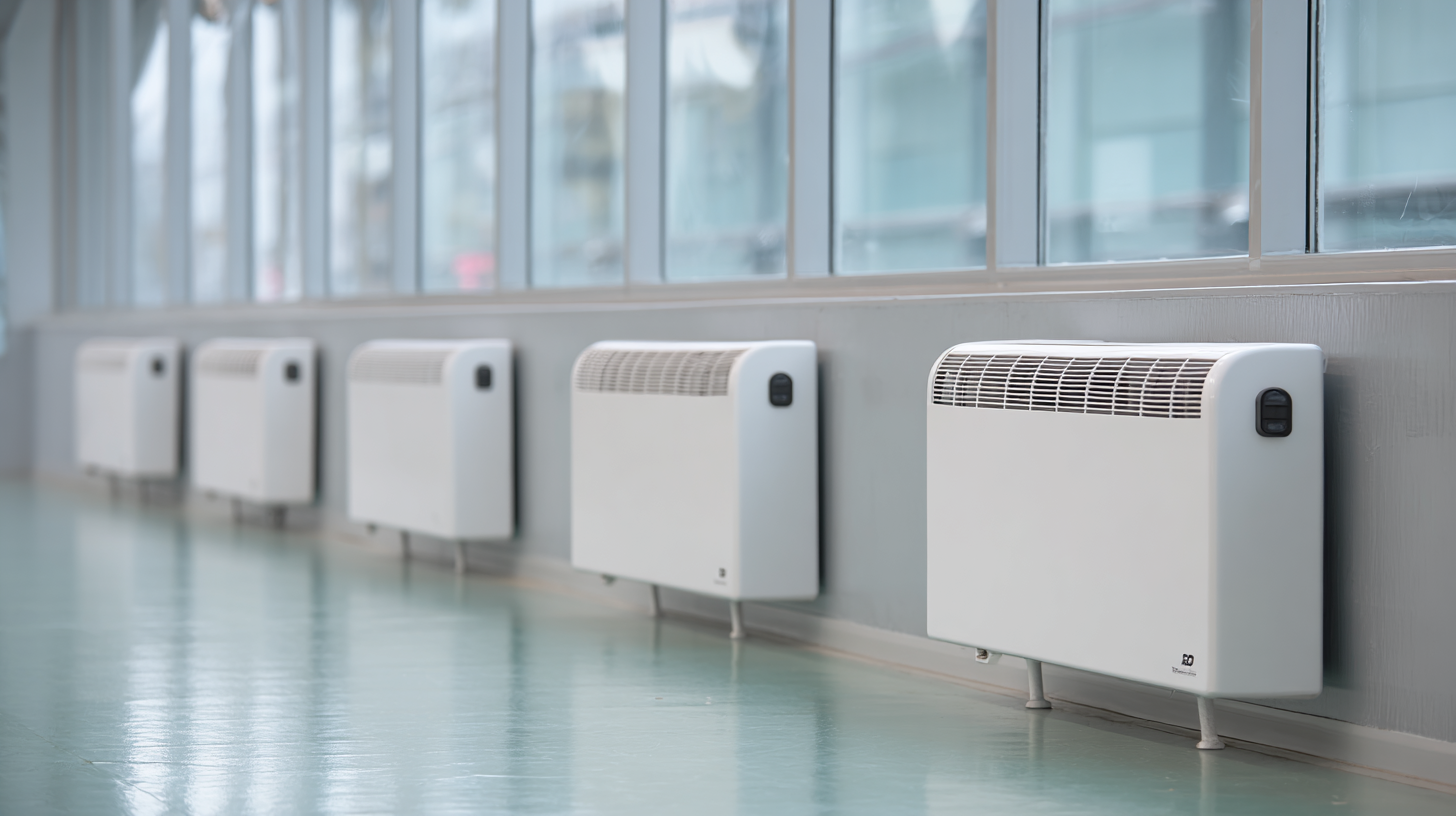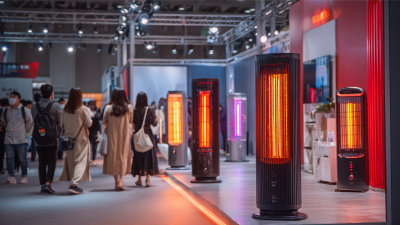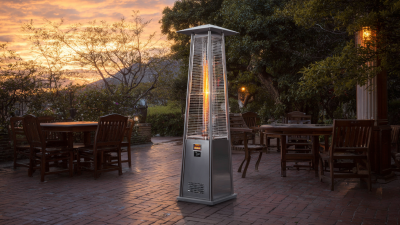FAQS
How to Choose the Right Commercial Electric Heaters for Your Business Needs
When it comes to maintaining a comfortable atmosphere in commercial spaces, choosing the right heating solution is essential, particularly when considering the growing demand for energy-efficient options. According to the U.S. Department of Energy, commercial electric heaters are among the most popular choices due to their efficiency and reduced environmental impact. Reports indicate that the installation of electric heating systems can lead to a 30% reduction in energy costs compared to traditional heating methods. As businesses seek to optimize operational expenses while ensuring employee comfort, understanding the various types of commercial electric heaters available and their specific applications becomes critical. This guide aims to illuminate the key factors that should influence your decision-making process, helping you identify the best commercial electric heaters tailored to meet your unique business needs.

Identifying Your Business Space Heating Requirements
When choosing a commercial electric heater, the first step is to accurately identify your business space heating requirements. Consider the size of the area you need to heat—measure the square footage and take note of the ceiling height. Larger spaces may require multiple heaters or more powerful units to ensure even and efficient heating. Additionally, think about the layout of your space, such as the placement of doors and windows, which can contribute to energy loss and cold drafts.
Another important factor is the specific activities occurring in your business environment. Different businesses have varying heating needs based on the number of occupants, equipment generating heat, or the type of products being stored. For instance, a warehouse may need a heater that can handle extreme temperature fluctuations, while a retail store may prioritize aesthetics and quiet operation. Understanding these nuances will help you select a heater that not only meets your direct heating needs but also aligns with the overall comfort and operational efficiency of your business.
How to Choose the Right Commercial Electric Heaters for Your Business Needs
| Heating Requirement | Room Size (sq ft) | Recommended Heater Power (kW) | Energy Efficiency Rating | Additional Features |
|---|---|---|---|---|
| General Office Heating | 300 | 3.0 | A+ | Thermostat Control |
| Warehouse Heating | 1500 | 15.0 | B | Portable Design |
| Retail Store Heating | 500 | 5.0 | A++ | Quiet Operation |
| Restaurant Heating | 800 | 8.0 | A | Timer Function |
| Factory Heating | 2000 | 20.0 | C | High Durability |
Evaluating Different Types of Commercial Electric Heaters
When evaluating different types of commercial electric heaters, the first step is to consider the
specific heating requirements of your business environment. According to the
U.S. Department of Energy, commercial electric heating systems can be
up to 90% efficient, making them an ideal choice for businesses looking to minimize
energy costs while ensuring adequate warmth. Common types of electric heaters include
convection heaters, infrared heaters,
and fan-forced heaters, each possessing unique advantages
to meet diverse heating needs.
To make an informed decision, it's essential to assess the space's layout and thermal characteristics.
For instance, infrared heaters excel in open areas where immediate heat is desired, while
convection heaters are beneficial for evenly distributing warmth in enclosed rooms. An industry survey
indicated that nearly 60% of businesses prefer infrared options for
their efficiency in large spaces.
Tips: When selecting a heater, consider the size of your space
and the desired temperature. Also, ensure that the chosen heater has a thermostat
for precise control. Finally, check for energy-efficient models that comply with ENERGY STAR
standards, as they can significantly reduce your operational costs over time.

Key Features to Consider When Selecting Electric Heaters
When selecting electric heaters for your business, it’s crucial to consider several key features to ensure safety and efficiency. First, evaluate the size of the space you need to heat. Different heaters have various capacities, and choosing the right one is vital for optimal performance. Additionally, look for energy-efficient models to help reduce electricity costs without compromising warmth. Features such as programmable thermostats and timers can also provide better control over energy usage.
Safety should be a top priority when using electric heaters. Opt for models with built-in safety features like tip-over and overheat protection to reduce the risk of fire hazards. It's essential to keep heaters away from flammable materials and ensure they are used in well-ventilated areas. Regular maintenance and proper placement are also critical factors in preventing accidents. By focusing on these features and safety measures, you can choose the right electric heater to meet your business needs effectively.
Assessing Energy Efficiency and Operating Costs
When selecting commercial electric heaters for your business, energy efficiency and operating costs should be top priorities. The efficiency of a heater is often measured in terms of its Energy Factor (EF) or Heating Seasonal Performance Factor (HSPF). A higher rating indicates more efficient energy use, which can significantly impact your overall energy costs. Consider heaters that convert a larger portion of their energy consumption into heat, providing better performance without driving up your electricity bills.
Tips: Always check the manufacturer's specifications for energy efficiency ratings before making a purchase. Additionally, look for units with programmable thermostats or smart technology options that can help optimize performance and reduce energy use when heating demand is low.
Operating costs also depend on the type of heater you choose and how often it will be used. Electric heaters generally have lower upfront costs compared to gas units but can lead to higher monthly utility bills if not managed properly. Implementing a routine maintenance schedule can help maintain efficiency and extend the life of your heater, further reducing costs in the long run.
Tips: Calculate your expected usage patterns and potential costs by comparing different models and their respective energy consumption. Investing in heaters with modern technology that supports energy-saving features can pay off over time through reduced operating expenses.
Understanding Safety Standards and Regulations for Electric Heaters
When choosing commercial electric heaters, understanding safety standards and regulations is paramount. Electric heaters must adhere to guidelines set forth by organizations such as the National Fire Protection Association (NFPA) and Underwriters Laboratories (UL). According to a 2022 report by the North American Heating Equipment Manufacturers Association, approximately 65% of commercial heating equipment incidents stem from non-compliance with safety regulations. This underscores the importance of selecting heaters that meet stringent safety certifications to mitigate risks.
Tips: Always verify that the electric heater you choose is UL-listed, indicating it has been tested for safety. Additionally, be aware of local building codes and regulations regarding heater installation and usage, as these can vary significantly and may affect insurance coverage for your business.
Regular maintenance is also crucial to ensuring compliance with safety standards. In fact, a survey conducted by the National Association of State Fire Marshals found that routine inspections could prevent up to 40% of equipment-related fires. Scheduling annual professional inspections and servicing can help prolong the life of your electric heaters while ensuring they operate safely and efficiently.
Tips: Consider implementing a maintenance schedule that includes both owner inspections and professional evaluations to stay compliant with safety standards and avoid potential hazards.

 Skip to content
Skip to content



